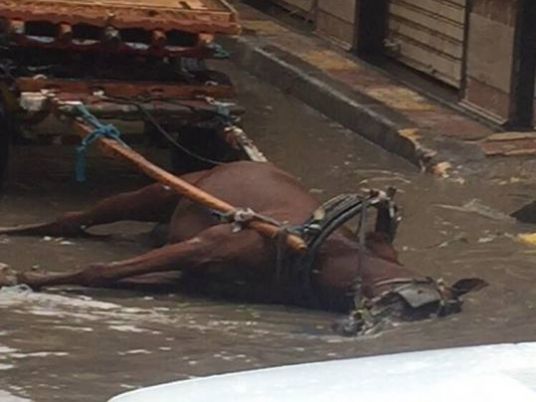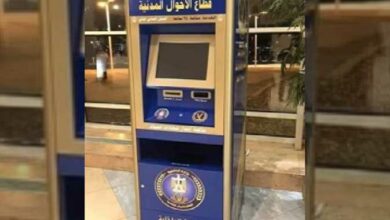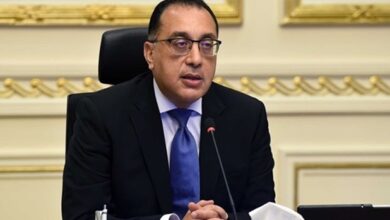Hundreds of Salafis staged a march after Friday prayers from the Omar Makram mosque to the Interior Ministry, in response to a call to protest from the Coalition of Support for New Muslims.
Protesters demanded the release of Sheikh Mohamed Fadel, also known as Abu Yehya, who was arrested for inciting hate and sectarianism before the clashes that took place in Imbaba last May.
The march then returned to the headquarters of the Arab League, where some activists staged a protest in support of the Syrian and Yemeni people. After protesters reached Sheikh Rayhan Street near the headquarters of the Interior Ministry, some persuaded the others not to approach further, for fear that thugs might infiltrate the march and incite violence, said Hassan Abouel Bukhary, the coordinator of the Coalition of Support for New Muslims.
Abouel Bukhary said the group was demonstrating to show solidarity with Yehya and draw the public's attention to his arrest, which he said came only to satisfy the Coptic Church. He described the case against Yehya as political and said it had no legal basis.
The demonstrators carried banners that read: "Prosecute the killers of Bilal," "National Security = State Security" and "No to the Emergency Law."
Some of them also raised images of Kamilia Shehata and Wafaa Constantine, who a number of Salafis believe the church detained in an attempt to prevent them from converting to Islam. The demonstrators distributed posters that read, "Egypt is Islamic."
The family of Sheikh Omar Abdel Rahman, who is currently imprisoned in the United States on charges of masterminding the 1993 bombing of the World Trade Center in New York City, also participated in the protest to demand his release.
Some families of those killed during the 25 January revolution participated as well, raising banners bearing images of their sons and demanding quick retribution for their killers.
The Salafi demonstrators chanted, "Islamic, Islamic Egypt will remain Islamic," "The Interior [Ministry] is the same … every day it fabricates a case" and "Jihadist Abu Yehya, an eyewitness to the state's injustice."
Translated from the Arabic Edition




